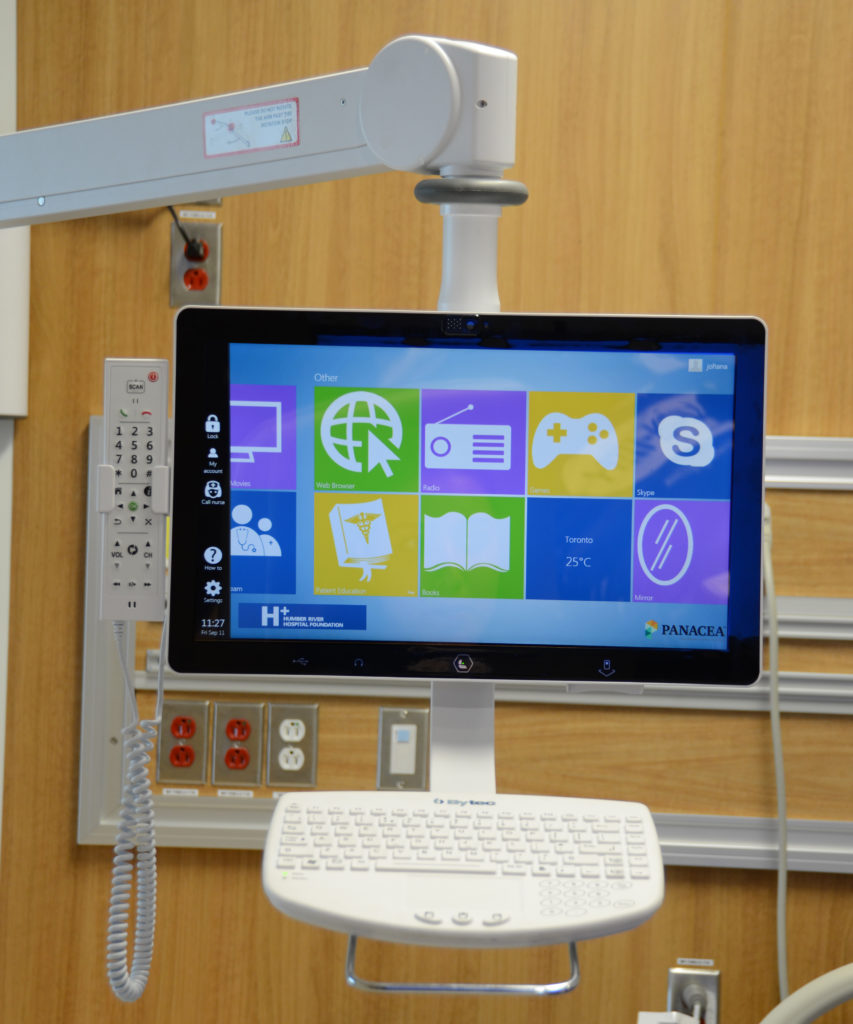Congestive Heart Failure: Chelsea’s Story
Chelsea knew something was wrong. It was February 2018 and what had started out as cold symptoms (coughing, a sore throat, and feeling generally miserable) had worsened. More and more frequently, she found herself short of breath – gasping for air while climbing a set of stairs, or while walking to the bus stop near her house.

Chelsea knew something was wrong. More and more frequently, she found herself short of breath.
She met with doctors. She underwent various tests and scans. She was given an inhaler that didn’t help her breathing. In April, Chelsea returned to Humber’s Apotex Emergency Department where her doctors found pneumonia. She was prescribed an antibiotic and started to feel hopeful that she would soon be back to normal.
But new symptoms started to emerge. Chelsea was frightened when she suddenly gained 20 lbs in just one week. She started experiencing spells of dizziness, and some nights her heart raced so fast she had to sleep sitting upright.
“Every night I went to bed scared that I wouldn’t wake up in the morning,” Chelsea remembers.
In May, Chelsea returned to Humber River Hospital. “Something is wrong with me,” she told the triage nurse in the Emergency Department. “I can’t breathe. I can’t walk.”
The doctors who took an ultrasound of her chest agreed that she could not go home. She was surprised to learn that it was her heart, not her lungs, which was the source of her discomfort. Chelsea was admitted to Humber as an inpatient and was assigned to a hospital room in the Cardiology Unit for 5 days.
Her Cardiologist Dr. Rebecca Allan explained that Chelsea had Congestive Heart Failure (possibly caused by her pneumonia) which was rare for a 29 year old. Chelsea’s weight gain had been bloating caused by her heart condition, and it went away almost immediately once Dr. Allan restricted her sodium and liquid intake. She was told that her heart was functioning at about 10%, and Dr. Allan put her on medications that would help improve her heart functionality.

Chelsea was able to order food using the Integrated Bedside Terminal in her room. Her menu was tailored to her new sodium-restricted diet, but included things like French toast, pasta, and shepherd’s pie.
As an inpatient at Humber, Chelsea was able to order her food before going to sleep using the Integrated Bedside Terminal (IBT) in her room. Her menu was tailored to her new sodium-restricted diet, but included things like French toast, pasta, and shepherd’s pie that stood out to her.
“My stay was comfortable,” she says, “My room was cleaned every day, my nurses brought me heated blankets when I was cold and let me know ahead of time what tests to expect every day, and when my family came to visit they especially liked the gelato at Lavazza!”
Since discharge, Dr. Allan has been adjusting Chelsea’s medications. She also referred Chelsea to a class that would teach her more about Congestive Heart Failure at the hospital, and has set her up with a tablet, heart monitor, pulse oximeter, and a scale at home. Every day Chelsea sends her vitals to a nurse so that they can keep track of her progress and catch anything abnormal before it becomes an issue.
By July, Chelsea’s heart was functioning at 30%, and in September it had improved to 40%. It’s still not where Chelsea and Dr. Allan would like it to be, but Chelsea is hopeful.
“I never thought I would have a heart condition,” says Chelsea. “It was scary because I didn’t know anything about it. But Dr. Allan has been great, I’m starting to get used to the medication, and my heart has been improving every visit.”






